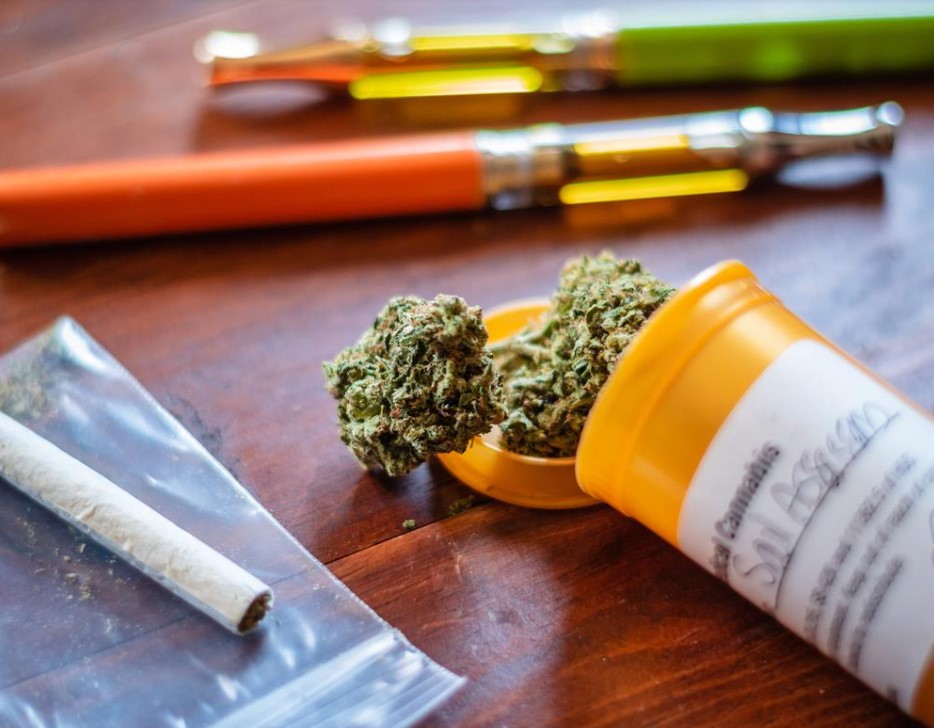Study Cannabis for Chronic Pain Leads to Fewer Prescription Meds

Is cannabis a reliable substitute for prescription pain medications when treating patients for chronic pain? Medical cannabis advocates have long said ‘yes’. There is a growing mountain of evidence suggesting they are correct, including a recently released study from the New York Department of Health.
The New York data suggests that chronic pain patients are less likely to use prescription opioids when they are given access to medical cannabis to manage their pain. Knowing what we know about certain types of prescription painkillers, any data in support of replacing those medications with medical cannabis should not be ignored.
Cutting Opioids in Half
Researchers from the New York Department of Health analyzed patient data involving some 8,000 people enrolled in the state’s medical cannabis program. They looked at patient use of prescription medications in relation to medical cannabis consumption and noted that daily opioid use was cut in half among chronic pain patients who used cannabis for at least 30 days.
Medical cannabis users reduced their consumption of prescription medications by 47%-51% at eight months. Meanwhile, patients who used medical cannabis for less than 30 days cut their prescription med consumption by 4%-14%.
These numbers suggest that there is a time commitment involved. The longer a chronic pain patient utilizes medical cannabis, less likely that person is to depend on prescription painkillers. Given what we know about the addictive nature of prescription painkillers, time is a key factor. The longer a chronic pain patient uses prescription painkillers, the more likely they are to become addicted.
Chronic Pain Is Still #1
The implications of the New York study go well beyond just finding a safer alternative to prescription painkillers. It should be noted that chronic pain is still the leading complaint mentioned by people applying for medical cannabis cards. It is certainly the chief complaint in Utah.
Payson’s Pure Utah medical cannabis pharmacy serves their fair share of chronic pain patients. They say it is pretty common to hear patients talk about using medical cannabis after discovering that prescription painkillers were not working for them. They talk about how medical cannabis offers them the relief they need.
At the end of the day, isn’t that what this is all about? Doctors willing to prescribe powerful painkillers do so because they want to offer their patients relief. The same is true for medical providers who recommend cannabis as a chronic pain treatment. The motivations are the same. Unfortunately, the medications are not.
Patients Need Plenty of Options
There is little reason to suspect the conclusions reached by the New York Department of Health in its recently released study. So assuming what they assert is true, their data supports the idea that patients need plenty of options. They need as many options as they can safely have.
Prescription opioids may very well be appropriate in some cases of chronic pain. But there is no way to definitively say they are appropriate in every chronic pain situation. Prescription painkillers do not always work as intended. Other times they work, but they create unintended consequences for patients.
Chronic pain patients should be able to say ‘no’ to prescription painkillers while still having access to medications that work. Perhaps that means over the counter (OTC) products for some patients. But medical cannabis should be another option as well. Thankfully, it now is in more than three-dozen states.
It is exciting to know that data supports the idea of medical cannabis leading to fewer prescription medications among chronic pain patients. Any reduction in opioid prescriptions is a good thing, no matter how small.




